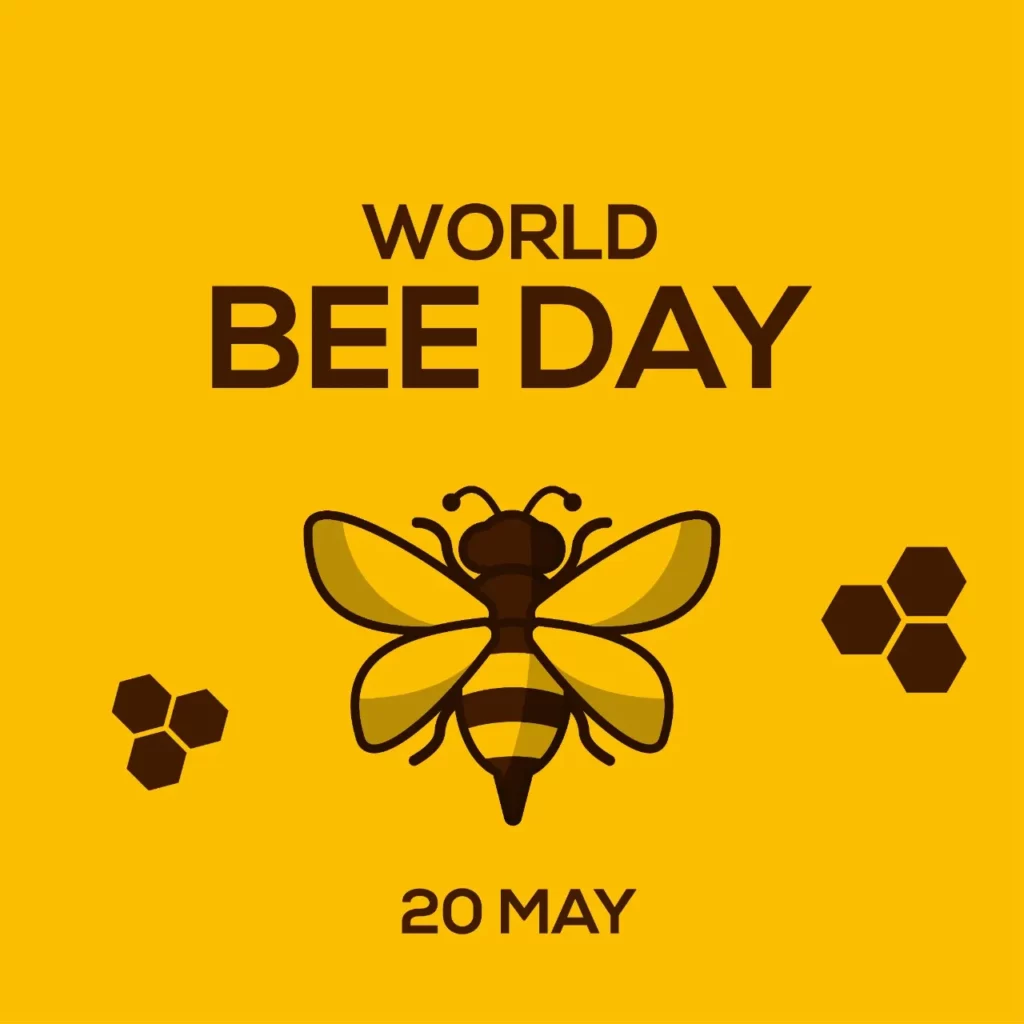- Bees and other pollinators are critical to healthy ecosystems and food security. They help maintain biodiversity and ensure the production of nutritious food. However, intensive monoculture and pesticide misuse pose serious threats to pollinators by reducing their access to food and nest sites, exposing them to harmful chemicals, and weakening their immune systems.
- The annual celebration of World Bee Day raises awareness of the essential role that bees and other pollinators play in maintaining the health of people and the planet, as well as the many challenges they face today.
- This celebration has been taking place since 2018, thanks to the efforts of the Slovenian Government and the support of Apimondia, which resulted in the UN General Assembly resolution declaring May 20 World Bee Day.
- The date chosen to celebrate World Bee Day is the birthday of Anton Janša, a pioneer of modern beekeeping from a family of beekeepers in Slovenia, where beekeeping is an important agricultural activity with a long tradition.
- Today, the number of bees, pollinators, and many other insects is declining. World Bee Day is an opportunity for all of us – governments, organizations, civil society, and concerned citizens – to promote actions that protect and help pollinators and their habitats, increase their abundance and diversity, and support the sustainable development of beekeeping.
- Under the theme “Commit to bees: for pollinator-friendly agricultural production,” World Bee Day 2023 calls for action worldwide to support pollinator-friendly agricultural production and highlights the importance of protecting bees and other pollinators, especially through evidence-based agricultural production practices.
KEY FIGURES
- Humans depend on pollinators for our survival, as they play a vital role in agriculture, ecosystems, and food production.
- Between 85-90% of major crops and 35% of global food production benefit from animal pollination, particularly bees.
- The vast majority of pollinators are wild and include at least 20,000 species of bees. However, there are fewer and fewer of them, both in number and variety, due to multifactorial causes, most of them related to human action.
- Threats such as deforestation, indiscriminate use of pesticides, and climate change are impacting the number and variety of bees and other pollinators, and their populations are declining drastically: more than 40% of bee species are under threat of extinction, as are 16.5% of other vertebrate pollinator species, such as bats and rodents.
- This poses a risk to biodiversity and agrifood systems, food production, food security, and the livelihoods of millions of people who depend on pollination ecosystem services.
- In Latin America and the Caribbean, bees and other pollinators are critical: it is estimated that between 2.5% and 15% of regional agricultural GDP depends on the ecosystem service of pollination.
- According to a 2017 study by the Food and Agriculture Organization of the United Nations (FAO), if pollinators were to disappear, the region could lose between 2% and 25% of its agricultural production:
- To halt the decline of pollinator populations, we must know them and understand their fundamental contribution to our lives.
- In the current context, reconstruction is necessary for the post-pandemic recovery of agri-food systems: reconstruction for bees and pollinators means supporting activities that reduce the causes of biodiversity loss and ecosystem balance.
- To this end, it is essential to work together with governments, academia, farmers, peasants, and civil society to promote friendly forms of agriculture, which in some cases are based on ancestral knowledge, and to maintain their diversity.
- FAO is working to build a solid knowledge base on pollination ecosystem services, and promoting good sustainable agricultural practices that prioritize effective management and conservation of pollinators. This involves everything from the formation of scientific and technical networks to support for the establishment of conservation policies and on-the-ground training of people who use pollination services.
- This approach will enable countries in the region to achieve greater agricultural productivity while maintaining biodiversity and ecosystem balance.
- There are several international initiatives, but countries must work together, due to the complexity of coordinating actions involving different sectors.
- Protecting bees and pollinators is part of the holistic approach to sustainable agriculture, which recognizes the links between human, animal, plant, and environmental health. This increases the resilience of ecosystems (including in the face of future pandemics) and supports green growth and development.
- We must realize that bees and all pollinators are one of the keys to the sustainable and resilient development of the planet.



